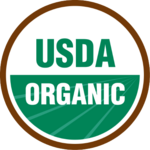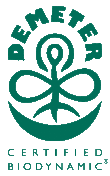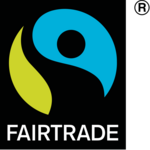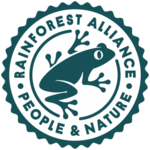
For many consumers, healthy living means practicing sustainable waste—trash, recycling, reuse, compost—habits. But sustainable living is not just about eating “healthy”; helping to maintain our Earth’s ecosystem just as much starts with the food on your plate!
Generally, moving away from manufactured goods in favor of raw vegetables, grains, fruits, and nuts, and reducing consumption of animal products are two broad measures that will usually lead to a decreased carbon footprint at the dinner table.
In the meantime, here are some tips for navigating sustainable food certifications while at your local grocery store:

USDA Organic
One of the most widely known certifications, USDA organic-certified businesses and farms must adhere to both plant and animal sustainable practices. USDA Organic produce is grown in soil with no prohibited substances (including most synthetic fertilizers and pesticides) applied in the previous three years. For meat to be USDA Organic certified, the animals must be raised in accommodating living conditions, fed organic feed, and administered no artificial hormones. Aside from fresh produce and meat, processed foods can also be organic as long as their ingredients are organic, and they don’t contain artificial additives. However, don’t be fooled by generic labels like 100% Natural. Without the official USDA Organic seal, “100% Natural” does not guarantee that your dollars are not promoting harmful agricultural and producing habits.

Demeter Biodynamic
Though USDA Organic and Certified Humane labels are helpful in that they are broad, if you want to ensure your food has the smallest impact on biodiversity possible, look out for the Demeter Biodynamic seal. The Demeter Association is a non-profit group dedicated to promoting biodynamic farming, a holistic approach to food and nutrition that emphasizes cultivating awareness and mutual respect between business, farmer, and living organism. For Demeter Biodynamic, ‘living organisms’ refer not just to the animals grazing but farms themselves. The great thing about Demeter Biodynamic certification is that it encompasses ‘organic’ as outlined by the USDA in addition to stricter regulations around farm maintenance, e.g. pest control and water conservation.

Fair Trade Certified
Fair Trade USA, while not explicitly focused on ecological biodiversity, is a great global movement that represents an agreement between producers, companies, shoppers, advocates, and organizations to put workers and the planet first. All Fair Trade USA certified producers adhere to 4 sustainability pillars: income sustainability, empowerment, individual and community well-being, and environmental stewardship. For example, Fair Trade wages should fulfill basic household needs, gender and race equality is upheld, and the use of environmentally harmful chemicals is prohibited. Look for the Fair Trade symbol on food products to ensure that you’re supporting socially and environmentally responsible businesses and farms.

Rainforest Alliance
Perhaps most important considering our current climate, Rainforest Alliance is dedicated to maintaining the harmony of business needs with the needs of the natural rainforest ecosystem. Compliant groups must adhere to that year’s Sustainable Agriculture Standard which is divvied into Farm and Supply Chain groups. On top of rainforest maintenance itself, Rainforest Alliance has committed itself to supporting the livelihoods and human rights of those rural peoples who inhabit the rainforests. And if you are asking yourself ‘Why rainforests?’ consider that your morning pot of joe (along with chocolate, bananas, tea, and palm oil—one of the most ubiquitous processed food ingredients) are all sourced from this delicate resource. By changing small habits at home, we can all make a big impact on preserving our Earth for decades to come.